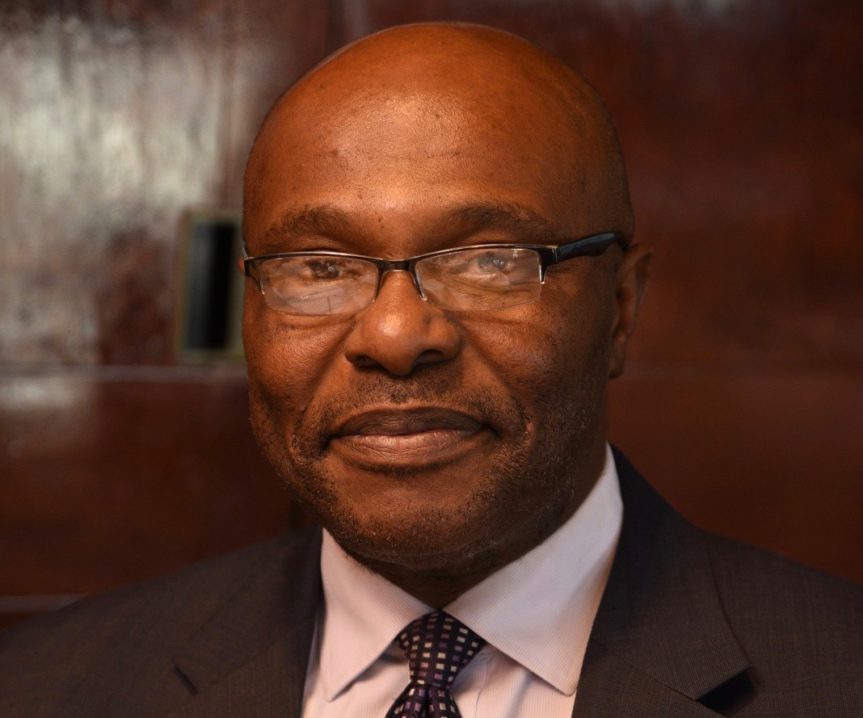When Anietie “Nate” Udofia thinks about the digital divide in Oakland, and the “new normal” public education is facing because of the pandemic, he does so with a global perspective. Udofia is a Nigerian American who has decades of experience working on distance learning and helping communities gain access to digital tools.
He sees similarities in Oakland, other urban communities in the United States, and with Nigeria and other African communities he has visited or worked in: how a lack of access to technology cuts off a community from the rest of the world, and limits their opportunities to not only connect but get employed, and serve as foundations for why young people want to migrate from Oakland or home community, feel marginalized or become radical.
“It all goes back to ‘How do you build a resilient system that adapts to the local need?’” he said.
Udofia was born in Nigeria, and emigrated at an early age and lived in Mississippi, New York and Nebraska before attending Cornell University in Ithaca, NY. He first came to the Oakland area as Sales Team Manager for Cisco Systems in the late 90s.
After leaving Cisco in 2002, Udofia teamed up with fellow Cisco-alum Nigerian American who grew up in Los Angeles, to start Essential Solutions International, an ICT solutions provider in the age of expanding broadband in the USA; as opposed to basic dial-up internet enabled internet cafes across Africa, where steady grid electricity was a barrier for the distance learning platform, E-LEARN.
Udofia saw the patience people had, sometimes waiting an hour for an email to download, and said he realized just simple access to electricity and technology can save money, time and lives. There were many parallels to urban and rural American communities, too.
He has worked collaboratively with organizations like Green for All, Green the Church, West Oakland Development Group and others promoting green jobs, workforce and community development in Oakland, and launched Imperial Education and Technology Solutions , a end-to-end edtech firm that aims to bridge the educational and technology divide in communities in Oakland, DC, North Carolina and Lagos, Nigeria.
Udofia believes in setting up local, economically viable, operationally efficient, environmentally-friendly and socially responsible solutions to advance collaborative community resilience and reduce the disparities that are increased in the midst of natural and man-made disasters, like the corona pandemic, while changing the mindset of these underserved communities from just consumers of tech to technology creators, with a greater stake in the global economy.
“The more we can get the kids and their parents to be a part of the production — from a manufacturing, assembly of different devices, to coding, all these types of tool sets — the more we prepare the community to create their own future,” he said.
“From 2002 till this day, we’re still talking about these same types of issues,” he said. “In fact in a lot of ways, the digital divide has grown. If you don’t have access, if you are in a community where providers aren’t focused and resources are limited, it takes you down a path of not acquiring the digital skills to get into the types of jobs that are available, or being able to start a business that solves problems or eliminates other disparities in our communities.”
Udofia said Imperial Edtech and it’s ecosystem partners are trying to navigate the Oakland landscape and how they can collaborate more to close the digital divide. He wants Oakland leaders to think about new solutions, like creating spaces for students to learn about computers by manufacturing, assembling and fixing them to better understand the supply chain and how they work. He doesn’t think it’s possible to close the digital divide if we continue to approach problems the same way but expect to get different results.
“When someone like Jack Dorsey writes a $10 million check to support OUSD, what’s the best use of that?” Udofia says. “Is it to continue to do things the same way and expect different results? How do we better collaborate with Oakland communities locally so that we can export best practices and solutions domestically and internationally.”

